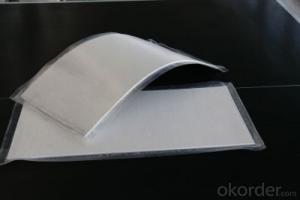XPS boards, also known as Extruded Polystyrene boards, are a type of insulation material that has gained popularity in recent years due to their versatility and effectiveness. These boards are made from polystyrene, a thermoplastic polymer, which is extruded and expanded to create a rigid foam structure. The result is a lightweight, durable, and efficient insulation material that can be used in a variety of applications, from construction to cold chain logistics.
Why Choose XPS Boards?
One of the main reasons to choose XPS boards for insulation is their excellent thermal performance. With a low thermal conductivity, XPS boards can effectively reduce heat transfer, keeping your space warm in the winter and cool in the summer. This not only provides comfort but also helps in reducing energy consumption and lowering energy bills.
Another advantage of XPS boards is their moisture resistance. Unlike some other insulation materials, XPS boards do not absorb water, making them suitable for use in damp environments. This property also prevents the growth of mold and mildew, contributing to a healthier indoor environment.
Applications of XPS Boards
XPS boards can be used in a wide range of applications. In the construction industry, they are commonly used for roof insulation, wall insulation, and floor insulation. They can also be used in cold storage facilities, such as refrigerated warehouses and cold rooms, to maintain low temperatures and preserve perishable goods.
In addition to their thermal insulation properties, XPS boards are also used for their structural properties. They can be used as a base for tile installation, providing a stable and even surface. They are also used in the creation of lightweight concrete, where their lightweight nature contributes to reduced material costs and easier handling during construction.
Installation and Maintenance
Installing XPS boards is a relatively straightforward process. They can be cut to size easily with a utility knife, and adhesive or mechanical fasteners can be used to secure them in place. Once installed, XPS boards require minimal maintenance. They are resistant to pests, do not rot or decay, and do not require periodic replacement.
Environmental Impact
While the production of XPS boards does involve the use of some non-renewable resources, there are efforts being made to reduce their environmental impact. Many manufacturers are now using recycled materials in the production process, and the energy efficiency provided by XPS insulation can actually reduce the overall carbon footprint of a building.
The Personal Touch
What sets XPS boards apart from other insulation options is their adaptability. Whether you’re a DIY enthusiast looking to tackle a home improvement project or a professional contractor working on a large-scale construction site, XPS boards can be tailored to fit your specific needs. Their ease of installation and customization options make them an attractive choice for many.
The Emotional Connection
Insulation might not be the most glamorous topic, but it plays a crucial role in our daily lives. It keeps us warm, protects our food, and even helps us save money on energy bills. XPS boards, with their versatility and effectiveness, can make a real difference in how we experience our living and working spaces.
Conclusion
In conclusion, XPS boards offer a versatile and efficient insulation solution for a variety of applications. Their thermal performance, moisture resistance, and structural properties make them an excellent choice for both residential and commercial projects. With proper installation and minimal maintenance, XPS boards can provide long-lasting benefits and contribute to a more sustainable and comfortable environment.

